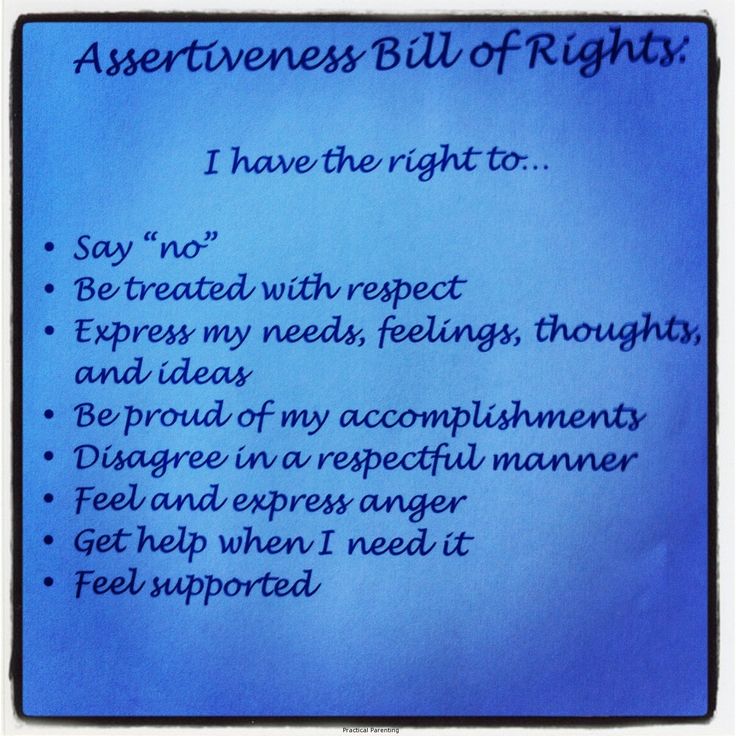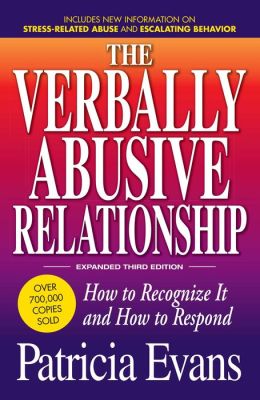|
I felt called to share about verbal abuse because October is National Domestic Abuse month and I know many people who are in or who have been in abusive relationships including myself. I just finished reading The Verbally Abusive Relationship by Patricia Evans and it was fantastic for understanding, evaluating, and learning how to diffuse verbal abuse and/or have healthy boundaries with people who are being abusive. Everyone has verbally abused and been verbally abused but there is a huge spectrum on the severity. As a child I was verbally abusive to one of my siblings because I didn't know how to handle my own hurt. It wasn't okay that I did that and once I realized how hurtful I was being I made amends to them. Some people have been verbally abusive to me and I normalized it until I got emotionally overwhelmed in high school and had to deal with it. Alanon (friends and family of alcoholics and drug addicts), counseling, and yoga really helped me. A lot of our behavior is inherited from generations of our family not dealing with trauma. My great great grandparents came from Ireland where they were pushed out of their homeland because the English shipped out most of their food so when there was a potato famine thousands of Irish starved to death or left their families, land, and culture to survive. That's how my Irish relatives ended up in New York. Some people are able to adapt and heal well from trauma and some are not. Some of my Irish family members took to the drink and their lives were cut short. So many people in our culture numb themselves with alcohol or other drugs because they don't know how to process old traumas. It's hard to be a good parent if your own emotional needs aren't met. My parents did an amazing job with us, but no matter how great we parent we always have some challenges that we give to our children. My mom always hugged us because her mom never did. My dad always made sure he was in our lives because his dad wasn't. Our parents are always trying to do better than their own parents. I believe we are supposed to have challenges in our lives, that the trauma that is passed down to us is one of our greatest teachers. But it can also be our biggest demon if we ignore it. Just like verbal abuse, it's now okay to be abusive or be abused, so how do we recognize it and what do we do about it? Verbal abuse can happen in so many venues; romantic relationships, family, sports teams, school, church, anywhere there are relationships. Patricia Evans has wonderful questionnaires for each category. Here are five simple behaviors that reveal verbal abuse: '1. They can try to take away your independence. Signs of verbal abuse and manipulation can start off subtly. At first, it may not seem odd that your loved one is jealous when you’re with other friends or family members, but if they’re stopping you from leaving the house without them, you should step back and assess the situation. According to the National Domestic Violence Hotline, a verbally abusive loved one may also monitor your comings and goings. Additionally, they may tell you when you can or cannot leave the house, and even decide what you can wear. This controlling partner may diminish your independence in other ways as well, such as through overriding your choices or controlling your money. Sharing funds or a bank account is one thing, but your loved one should not be making all your financial choices or taking your money from you. 2. They may intimidate or threaten you. Unfortunately, some of the clearest signs of domestic abuse are the most dangerous. Threats and acts of intimidation from a loved one are unignorable. They are also unacceptable. You should never be in a position in which your loved one makes you feel unloved and unsafe. Even silent intimidation is considered verbal abuse. Body language makes up more than half of all communication, and intimidating body language is a major red flag in a relationship. If a loved one is following or stalking you; looking at you or acting in ways that scare you; trapping you in your home; or damaging your things by throwing, kicking, or hitting when they are angry, seek help from someone you trust. 3. They pressure you into doing things you don’t want to do. Coercion is another form of verbal abuse that may not be easily recognizable. Coercive loved ones might convince you that you owe them favors because of your relationship. If this is the case, you should look at the situation objectively and remind yourself that your first obligation is to yourself and your safety. If your loved one is pushing you to make a choice you don’t want to make or forcing you to have sex, know that they shouldn’t be making you do anything that goes against your personal comfort level. 4. They can gaslight you. Gaslighting is a form of manipulation used to make victims question themselves and their own sanity. If your loved one is gaslighting you, they may tell you blatant lies or say that you’re making up stories or imagining things. This exhausting, dangerous manipulation tactic takes place and grows over time. It might not be something that you notice at first. We all occasionally feel we’re too sensitive or that we’re doing everything wrong; however, if you’re constantly second-guessing yourself because your abusive loved one questions your point of view, you may be the victim of gaslighting. Ask someone you trust for their objective opinion of the situation and remind yourself that you aren’t always wrong. 5. They can make you feel worthless. Offensive language and insults are more obvious signs of verbal abuse, but they aren’t the only routes your loved one may take to affect your thought patterns and sense of self. An abusive loved one may offhandedly tell you that you do everything wrong; or that you’re a bad child, significant other, or parent. In addition, verbal abuse can be the absence of verbalizing. The “silent treatment” is a dangerous tool used to ignore the needs of another person that makes them feel as if they are not worth it. This individual may also threaten to withhold attention or affection as punishment or humiliate you in front of friends and family. Try to remove yourself from these situations. Be positive about yourself and seek validation and refuge with supportive friends and family. Final thoughts “It amazes me when education, religion and family values fail to create a human being.” – Anum Sattar Domestic or verbal abuse can be difficult for a victim to recognize, especially when it has yet to become physical. This is why knowing the signs of verbal abuse is so important. If you or someone you care about is in a potentially abusive relationship, seek out a path to safety.' https://www.powerofpositivity.com/verbal-abuse-relationship/ f you are realizing that you are in an abusive relationship or just want to improve your self-care then here are some ways to improve your confidence:
1. Realize that you are in an abusive relationship. Read about verbal abuse and discuss with a counselor or trusted friend. 2. Seek support and receive support: verbal abuse can slowly erode your self-esteem and the best way to heal that is being in the company of those who remember and recognize our authentic self.Counseling: most insurance covers counseling even state insurance. If you don't have insurance there are many counselors who do sliding scale. ACOA: Adult Children of Alcoholics 12 Step Program. There are phone meetings and meetings in most cities and towns. Many people who enter abusive relationships grew up in an alcoholic home, so healing from that can help you have a healthier relationship with yourself and others. Alanon: Friends and Families of Alcoholics and Drug Addicts. There are also phone meetings and meetings in most cities and towns. Alanon is great for overcoming co-dependency and most abusive relationships involve alcohol. Yoga: commit to 1-5 yoga classes a week. Yoga helps slow the mind and connects us to our higher self. Yoga is also a great place to make good friends. The longer the pain and negative emotions are bottled up, the more harm the abuse does to you. Being able to talk with trusted friends and family about the experiences you have been through will help you process and heal from the trauma of being verbally abused. The most difficult aspect of getting support is being able to receive what is being offered. Often trust has been diminished by being with an abuser. Being able to receive love and affection is hard, yet receiving support is essential for healing your wounds. 3. Affirm your value and honor your self-esteem Reclaim your rituals that increase your connection to yourself such as: journal, pray, meditate, walk alone in the woods or by water, go to church or your temple, sing, dance, make art, or whatever makes you feel connected to your higher self. Part of affirming personal value is to set healthy boundaries and to stick with them. What's important with being assertive is knowing what you will choose to do if someone isn't going to honor what you need. An example would be; "When you drive fast when it's icy I feel unsafe because it's easy to spin out and get in a car accident what I need from you is to drive slow when it's icy." If the person you asked this to isn't willing to go slower you have to decide what you will do such as; not be a passenger in their car anymore. The important part of having boundaries is sticking to them. 4. Forgive yourself, patiently Recognize and accept personal responsibility for your part: getting into and staying in a relationship with someone who didn't respect you. This is very liberating and helpful for not getting into a future abusive relationship. Forgiving ourselves can be difficult because we allowed somebody else to treat us poorly, we trusted and enabled their demeaning behavior, and for letting them use and lead us astray. Patience is required because a little bit heals at a time. When we are blessed with allowing forgiveness a large shift can happen. But our spirit and fullness of heart returns in time. 5. Laugh a lot Laughter makes the heart smile. Be around people who make you smile, watch funny movies, and be around people who are happy. 6. Empower our willpower Depression, also known as deep resting, is a normal part of healing from trauma and abuse. To break free of this shadow side comes from within and happens when we are ready. Daily routine, exercise, cleanliness, selfless service can all help in building our willpower. Learning to say no, breaking old habits and establishing new patterns all develop willpower.
0 Comments
|
Vanessa Charles
Journey to Colorado and beyond. Archives
November 2020
Categories |





 RSS Feed
RSS Feed